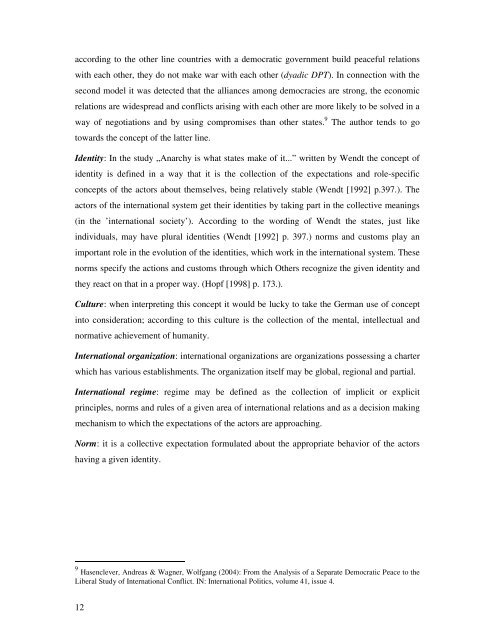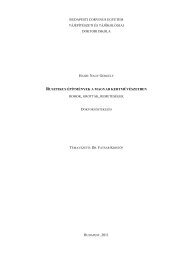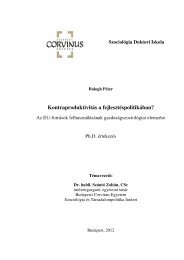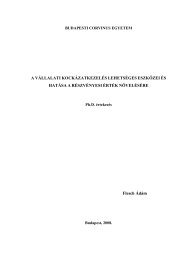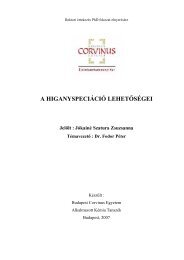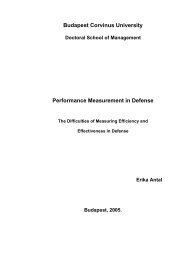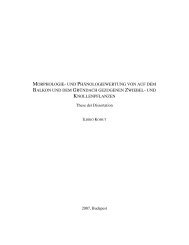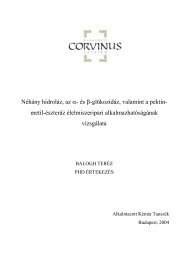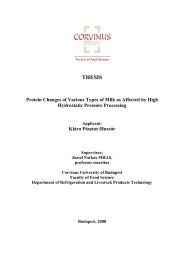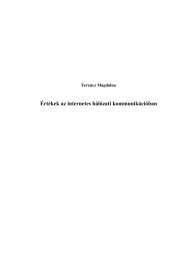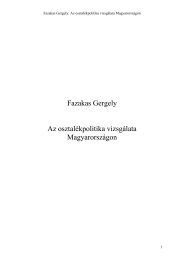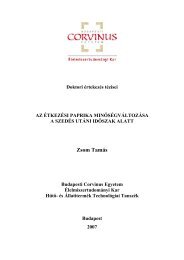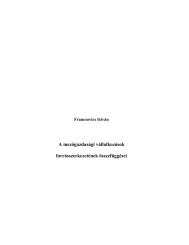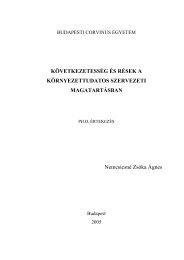THESES Kőváriné Ignáth Éva
THESES Kőváriné Ignáth Éva
THESES Kőváriné Ignáth Éva
You also want an ePaper? Increase the reach of your titles
YUMPU automatically turns print PDFs into web optimized ePapers that Google loves.
according to the other line countries with a democratic government build peaceful relations<br />
with each other, they do not make war with each other (dyadic DPT). In connection with the<br />
second model it was detected that the alliances among democracies are strong, the economic<br />
relations are widespread and conflicts arising with each other are more likely to be solved in a<br />
way of negotiations and by using compromises than other states. 9 The author tends to go<br />
towards the concept of the latter line.<br />
Identity: In the study „Anarchy is what states make of it...” written by Wendt the concept of<br />
identity is defined in a way that it is the collection of the expectations and role-specific<br />
concepts of the actors about themselves, being relatively stable (Wendt [1992] p.397.). The<br />
actors of the international system get their identities by taking part in the collective meanings<br />
(in the ’international society’). According to the wording of Wendt the states, just like<br />
individuals, may have plural identities (Wendt [1992] p. 397.) norms and customs play an<br />
important role in the evolution of the identities, which work in the international system. These<br />
norms specify the actions and customs through which Others recognize the given identity and<br />
they react on that in a proper way. (Hopf [1998] p. 173.).<br />
Culture: when interpreting this concept it would be lucky to take the German use of concept<br />
into consideration; according to this culture is the collection of the mental, intellectual and<br />
normative achievement of humanity.<br />
International organization: international organizations are organizations possessing a charter<br />
which has various establishments. The organization itself may be global, regional and partial.<br />
International regime: regime may be defined as the collection of implicit or explicit<br />
principles, norms and rules of a given area of international relations and as a decision making<br />
mechanism to which the expectations of the actors are approaching.<br />
Norm: it is a collective expectation formulated about the appropriate behavior of the actors<br />
having a given identity.<br />
9 Hasenclever, Andreas & Wagner, Wolfgang (2004): From the Analysis of a Separate Democratic Peace to the<br />
Liberal Study of International Conflict. IN: International Politics, volume 41, issue 4.<br />
12


